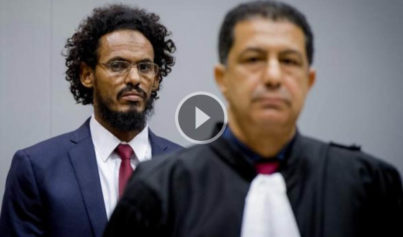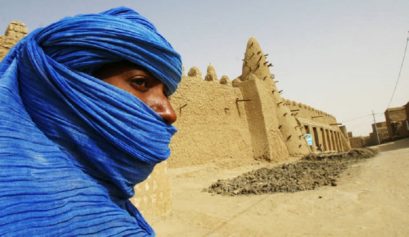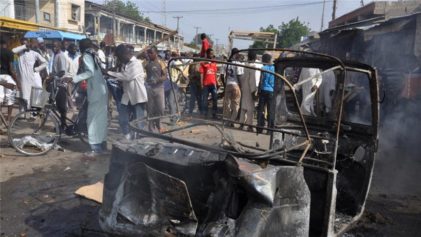France’s military mission in Mali has been so successful at driving back Islamist militants — killing hundreds in the process — that the French are now predicting their ground troops will leave Mali in March and hand security over to forces from Mali and other African nations.
French troops entered Mali on Jan. 11, using bombs dropped by fighter jets and a ground force that grew to 4,000 troops. They pushed the insurgents back north into the mountains and secluded areas of the Sahara. The Islamists had taken control of cities in the north such as Kidal and Gao and were threatening to move to Mali’s capital of Bamako, prompting French President Francois Hollande to respond to Mali’s request for assistance.
French Defense Minister Jean-Yves Le Drian last night told CNN affiliate BFM that the number of Islamist casualties was in the “hundreds.”
Even after France withdraws from the cities in the south and central regions, French Foreign Minister Laurent Fabius said troops will continue operations to flush out militants in “some terrorist havens” in the north. France wants to ensure that the Islamists can’t make future threats to France. Because of the nature of terrorism, even after the Islamists are routed in Mali, they only need small numbers to deliver significant damage in Mali and beyond.
Captain Samba Coulibaly, spokesman for the Mali military, said Malians shouldn’t be fearful that French ground troops are leaving.
“With the size of the force we have here right now, we can maintain security in the town of Timbuktu,” he said. “The departure of the French soldiers does not scare us, especially since their air force will still be present both in Timbuktu and Sevare. They control this entire zone and can intervene within a matter of minutes in order to carry out air strikes as needed.”
Last week, Hollande was welcomed like a conquering hero in Mali, the former French colony. On a whirlwind one-day tour, Hollande was greeted by jubilant Malians everywhere he went. Malians danced to the beat of drums, which was banned by the Islamist rebels under sharia law. In the famed city of Timbuktu, where insurgents had destroyed historic mausoleums, Hollande saw sport shirts with the flags of both countries and banners reading “Thank You France.” Hollande was presented with the gift of a camel. He waded into the adoring crowd in Timbuktu, accompanied by French Foreign Minister Laurent Fabius, Defense Minister Jean-Yves Le Drian and Development Minister Pascal Canfin.
“I have just lived through the most important day of my political life,” Hollande said to the cheering crowd waving the French red, white and blue colors and holding portraits of the president.
In Bamako, Hollande told a jubilant crowd yesterday, “Terrorism was pushed back, chased, but it hasn’t yet been vanquished. France will stay with you as long as it takes, until the time for Africans themselves to replace us. Until then we will be beside you to the end, as far as north Mali.”
Hollande said his country would support the Malian economy and help with reconstruction of public services, education, health, security and cultural heritage.
In an interview with Europe1 radio, Defense Minister Le Drian said, “The progressive passage of military responsibility to African forces can be done quickly and in a few weeks we can start reducing our forces.”
About 3,800 Africans troops from such neighboring countries as Chad, Niger and Nigeria are working in Mali alongside the French. The U.N. is expected to authorize a peace-keeping force to stay in Mali for the long haul.
France’s “Operation Serval” has been waged at a cost of “several tens of millions of euros,” Foreign Minister Fabius told the Metro newspaper.


